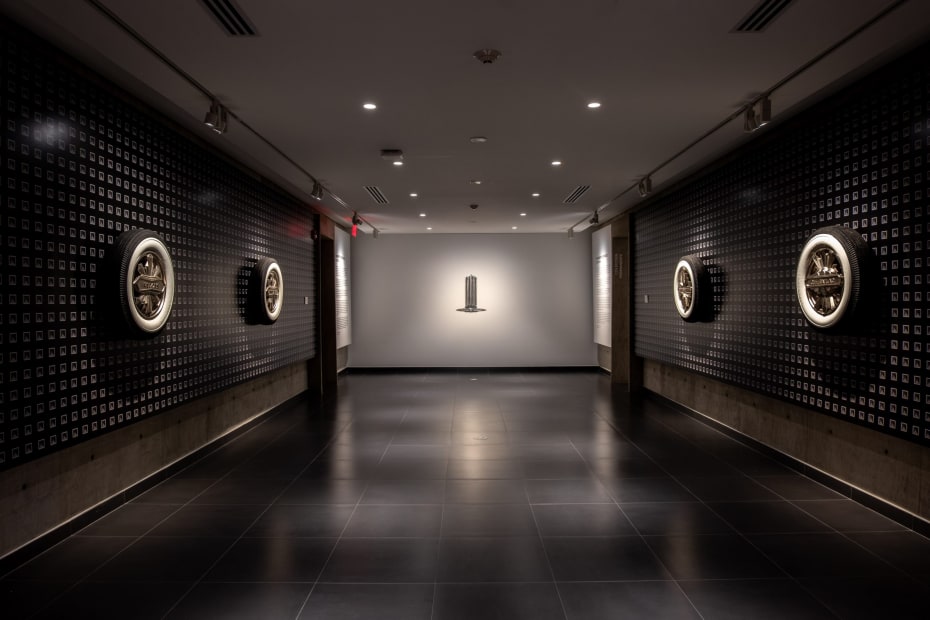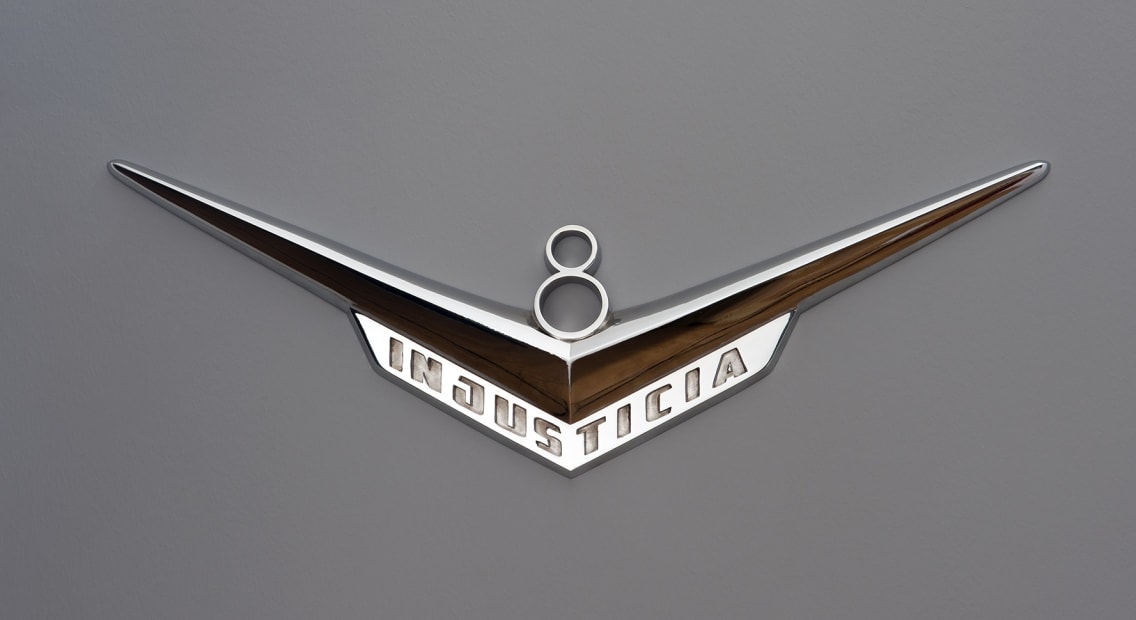Dagoberto Rodriguez: RetropíaMuseo de Arte y Diseño de Miramar, San Juan, Puerto Rico
This exhibition revolves around the series Emblemas, in which artist Dagoberto Rodríguez combines the aesthetic and paraphernalia of classic American cars with a linguistic exploration of the politics and culture of Cuba. In the series, the logos of antique models of brand names like Ford, Chevrolet or Pontiac have been replaced by words or expressions typical of revolutionary rhetoric, political dissent or, simply, of popular culture.
Once an eloquent symbol of the strength of the United States after World War II, classic American automobiles disappeared from the streets of the world with the gradual renewal of fashion, style, and technology. Paradoxically, in Cuba the cars have remained in use throughout sixty years of communism, becoming an integral part of the touristic iconography of the island.
It is estimated that during the 1940s and 1950s, four out of every five cars produced in the world were made in the United States, where domestic sales were sufficient to maintain the long economic chains involved in their manufacturing. This massive production of cars created a model of urbanism that spread into all parts of life.
Faced with a Europe devastated by war, the United States became the immediate reference point after which Latin American countries modeled their modernizing projects. However, these efforts frequently unfolded with failed results. The exhibition Retropía does not seek to feed into nostalgia or the cult of the classic automobile, but on the contrary, to reflect upon the imperative urge to rethink our cities and our manner of inhabiting them. This need is imposed on a global scale, but especially in Latin America where modernity, postponed, detained or incomplete, is maintained in the psyche and in life as a hereditary utopia or a permanent dystopia.
The title of the exhibition is based on the concept of retrotopy, a term coined by Zygmunt Bauman to refer to the current historical situation, in which the future is so threatening and uncertain that a mental escape is directed towards the past. The nostalgic exaltation, however, is also giving rise to a dangerous resurgence of nationalist mythologies, worship of incendiary leaders, and violent assertions of identity. Along these lines, Dagoberto Rodriguez's Retropía also seeks to warn about the risk of seduction by consumerism, transient fads, and extreme ideologies.





